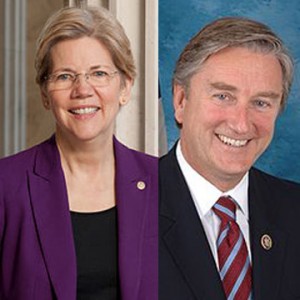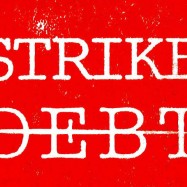 Student debt is a real growing economic and moral crisis. The conventional debate over solutions to this crisis has been anemic. The boundaries have been clearly drawn and options restricted to tinkering with interest rates. We need solutions that actually address the principal of the loans and prevent a new student debt crisis from bubbling up again. For instance: a student debt jubilee and the restoration of education as a common good.
Student debt is a real growing economic and moral crisis. The conventional debate over solutions to this crisis has been anemic. The boundaries have been clearly drawn and options restricted to tinkering with interest rates. We need solutions that actually address the principal of the loans and prevent a new student debt crisis from bubbling up again. For instance: a student debt jubilee and the restoration of education as a common good.
If that sounds utopian, ask a baby boomer who went to an in-state public college or university how much debt they went into to finance their education.
Today, after decades of cuts in state funding, debt-financed higher education is exacerbating the U.S.’s already extreme level of economic inequality. As it stands, students from low-income homes are regularly charged more than a third of their family’s annual earnings for a year of tuition at a public college. Extracting excessive interest to capitalize on the mortgaged futures of the 99 percent is repugnant, but Democrats’ efforts to lower rates will — at best — bring defaults under control, offering life support to a broken system in which all but the privileged few must incur crushing, life-altering debts to receive an education while loan servicers, speculators and administrators profit from their misery.
We can resuscitate our public university system and restore opportunity to millions, it’s simply a matter of priorities. For the money spent so far on the ten years of war in Iraq and Afghanistan, we could provide completely free public higher education at every single two- and four-year school in the country — for the next 52 years. For those already suffering under the burden of student debt, we call for a one-time jubilee — a mass cancellation of debts. Wiping the slate clean. Each generation that graduates into a lifetime of debt is a lost generation. Student debtors are less likely to start families, choose public service careers or be able to build their lives in ways that include more than just following a plan to repay loans. With a trillion dollars of student debt dragging down the economy as a whole, a jubilee is the only realistic solution for an economic turnaround. Jubilees work. Just ask Iceland, which offered a qualified jubilee on mortgages and rebounded from the mortgage crisis faster than any other country.
Until the conventional debate is opened up to include alternatives that genuinely reflect the needs of the 99 percent, we see collective resistance and refusal as the tactics most likely to succeed. Forty-three percent of Americans under 25 already have student debt, and debt burdens for those 60 and older are skyrocketing. Though what’s left of the white middle class has surely not been spared, the rate of Black and Latino students graduating with unmanageable debt burdens is around 20 percent higher than that of their white counterparts. Indebted women, LGBTQ and disabled folks who enter the workforce will also have a hard time keeping up with payments given the significant gap in wages they’ll encounter. Student debt is a tie that binds people from all corners of the 99 percent. It’s only a matter of time until we shake off the shackles of shame and isolation and realize our collective power.
*Correction Note: The original post erroneously stated that the money spent on the Iraq war from 2001 to 2013 would be enough to cover tuition expenses at public two- and four-year colleges for 58 years. The amount used in the original calculation also included the costs of the Afghanistan war ($3.10 trillion), and the resulting number of years of public education tuition expenses that would cover at current rates ($59.9 billion per year) is 52, not 58 years.
Strike Debt is building a movement of debt resistance and liberation based on principles of anti-oppression, autonomy, democratic decision making and direct action. Debt resistance can take many forms and Strike Debt is developing tactics, resources and frameworks for expanding the fight against the debt system while developing alternative systems of mutual aid for the common good. This post was written by members of the the collective for BillMoyers.com.






